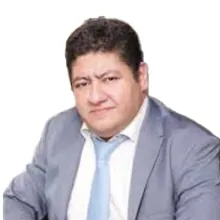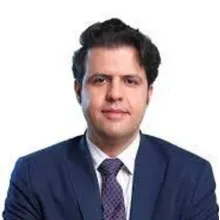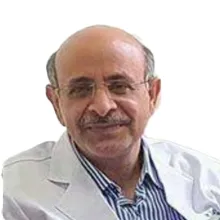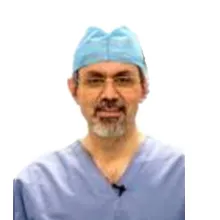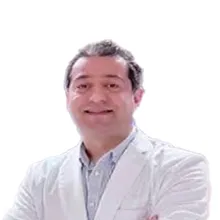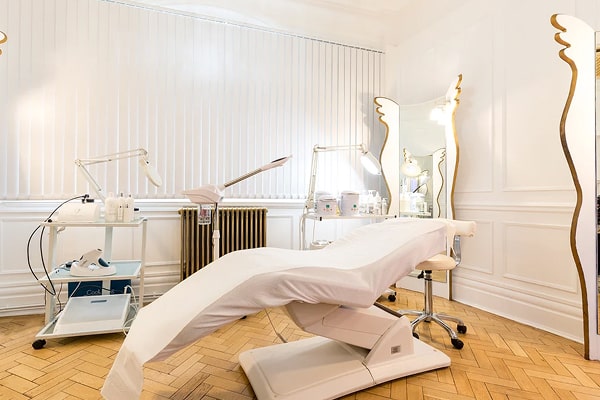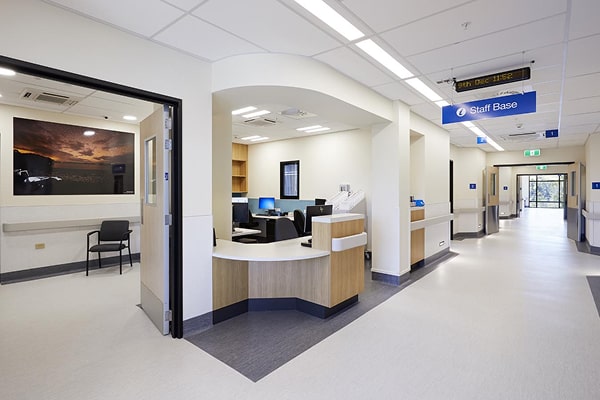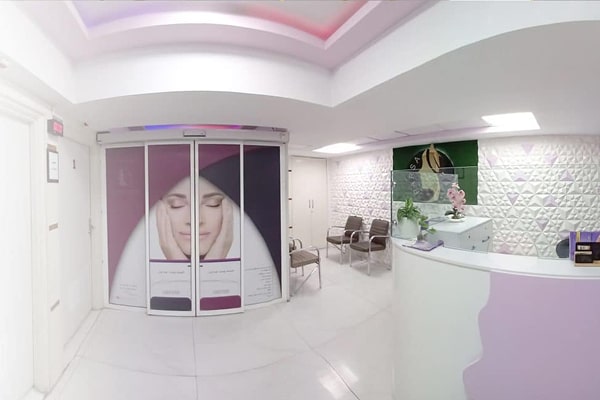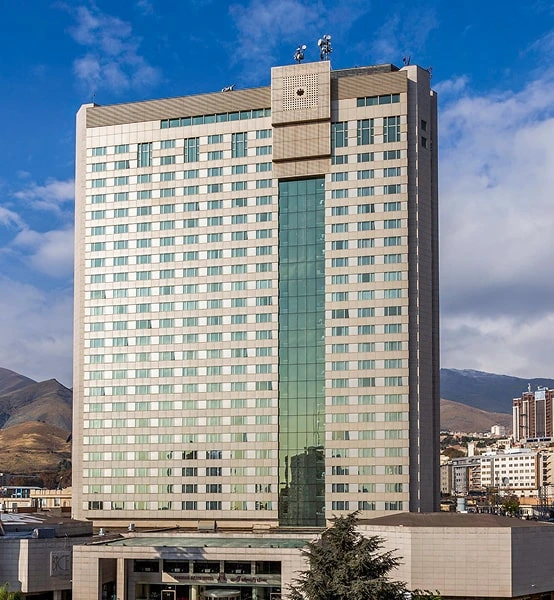Endoscopic skull base tumor surgery is one of the most advanced and specialized procedures used to treat both benign and malignant tumors located in the sensitive and complex skull base region. Utilizing modern technologies and minimally invasive endoscopic techniques, this surgery provides effective solutions for patients facing these challenging tumors. Due to the anatomical proximity of these tumors to critical structures such as the brain and nerves, the procedure demands extremely high precision and specialized expertise.
As a pioneer in medical tourism services, CCKaam provides a complete treatment journey—from initial consultation to post-operative follow-up—for both domestic and international patients. In this article, we’ll explore the advantages of undergoing endoscopic skull base tumor resection in Iran and the exclusive services offered by CCKaam.
Fast and Efficient Treatment Process in Iran
Endoscopic skull base surgeries in Iran are performed with high speed and precision. Patients are treated promptly and enjoy short recovery times, enabling a quick return to daily life.
General Overview of Endoscopic Skull Base Tumor Resection
- Treatment Type: Minimally invasive endoscopic surgery for skull base tumors
• Anesthesia: General anesthesia
• Surgery Duration: Typically 2 to 4 hours
• Recovery Period: Usually 2 to 5 days of hospitalization
• Success Rate: Over 85% in most cases
• Outcomes: Tumor removal, preservation of brain and nerve functions, minimized surgical risksBenefits of Undergoing Endoscopic Skull Base Tumor Surgery in Iran with CCKaam- Skilled and Experienced Surgeons
Iranian specialists trained at top international centers are known for their precision in handling complex skull base surgeries. - Advanced Medical Technology
Iran’s cutting-edge equipment allows for highly accurate, minimally invasive procedures with high success rates. - Cost-Effective Treatment
Patients receive world-class care at a fraction of the price charged in other countries. - All-Inclusive Medical Travel Services by CCKaam
From visa acquisition and hotel reservations to airport transport and translator assistance, CCKaam takes care of every aspect of your medical journey. - 24/7 Continuous Support
Patients can reach CCKaam at any time via video call or WhatsApp for medical guidance and reassurance.
Conclusion
Endoscopic resection of skull base tumors is among the most effective and advanced treatments available today. With world-class surgeons and modern medical infrastructure, Iran is a premier destination for this type of procedure. CCKaam enhances the experience with unparalleled services, ensuring a comfortable, cost-effective, and results-driven treatment journey. If you’re seeking a reliable solution for skull base tumors, contact us to begin your healing journey today.
Endoscopic Resection of Skull Base Tumors: A Cutting-Edge and Advanced Treatment Approach
Introduction
Skull base tumors are among the most complex and delicate types of tumors within the human central nervous system. These tumors grow in specific regions of the skull base that are closely associated with critical brain structures, cranial nerves, and blood vessels. Due to their intricate location, treating these tumors requires highly precise surgical techniques and specialized access. In recent years, endoscopic resection of skull base tumors has gained significant attention as a state-of-the-art approach. Using miniature cameras and specialized endoscopic tools, surgeons can remove tumors located in challenging areas with minimal disruption to surrounding healthy tissues — all without the need for large surgical incisions.Why Endoscopic Surgery for Skull Base Tumors?
Skull base tumors are typically situated near highly sensitive areas of the brain and nervous system. Traditional open surgeries often required extensive incisions and skull openings, which carried risks of serious complications, heavy bleeding, and long recovery periods. However, technological advancements and the adoption of endoscopic techniques have transformed the treatment landscape. Surgeons can now access and remove complex tumors with unprecedented accuracy and minimal invasiveness. This technique has proven especially effective for tumors located in hard-to-reach regions, offering a safer and more precise alternative.Advantages of Endoscopic Surgery for Skull Base Tumors
- High Precision Access to Tumors
Endoscopic tools and miniature cameras provide surgeons with a clear and magnified view of the tumor, allowing them to navigate intricate regions of the skull base with exceptional accuracy and control. - Minimal Damage to Surrounding Healthy Tissue
One of the primary benefits of endoscopic surgery is its tissue-sparing nature. The procedure is typically performed through small incisions or natural body openings — such as the nasal cavity — significantly reducing the risk of damage to the brain, nerves, and blood vessels. - Shorter Recovery Time
Because the surgery is minimally invasive and does not require large incisions, patients experience faster recovery times and can return to their daily activities much sooner. This also means shorter hospital stays and more efficient healing. - Reduced Postoperative Complications
The precision of endoscopic surgery, combined with the use of advanced equipment, lowers the risk of complications such as severe bleeding, infections, or injury to critical brain structures — making it a safer and more successful surgical option. - Improved Cosmetic Outcomes
With smaller incisions — often hidden within natural anatomical pathways — patients experience minimal visible scarring, which is particularly important for those concerned about facial or visible post-surgical effects.
Stages of Endoscopic Skull Base Tumor Surgery
- Evaluation and Diagnosis
Accurate identification of the tumor’s type and location is the first step. Advanced imaging techniques such as MRI, CT scans, and cerebral angiography are used to create a detailed map of the tumor. These results help the medical team formulate a personalized treatment plan. - Preoperative Preparation
Prior to surgery, patients undergo general anesthesia. The medical team conducts thorough pre-surgical assessments to ensure the patient is in optimal condition for surgery. This includes necessary lab tests and medical evaluations for safety assurance. - Performing the Endoscopic Surgery
The surgeon accesses the tumor through one or more small incisions or via natural openings like the nasal passages. Using specialized tools and high-resolution endoscopic cameras, the tumor is meticulously removed with minimal bleeding and maximum precision. - Postoperative Care
After surgery, the patient is transferred to a recovery unit for close monitoring. Vital signs, including blood pressure, respiratory function, and pain levels, are carefully managed. Once stabilized, the patient is moved to a hospital room for continued care. - Follow-Up and Monitoring
Continuous postoperative monitoring is essential. Patients typically remain hospitalized for a few days and then return home. Regular follow-ups include physical examinations, imaging to confirm the success of the surgery, and any necessary lab tests.
Applications of Endoscopic Surgery
Endoscopic techniques are suitable for a wide range of skull base tumors, both benign and malignant, particularly those located near vital structures. Common indications include:- Pituitary Adenomas – Tumors affecting the hormone-secreting pituitary gland.
- Gliomas and Brain Tumors – Malignant tumors potentially originating at the skull base.
- Intracranial Aneurysms – Especially those in deep, delicate regions of the brain.
- Benign Tumors – Located in complex or hard-to-reach cranial or skull bone areas.
Conclusion
Endoscopic resection of skull base tumors is one of the most advanced and effective methods for treating complex and high-risk tumors in critical areas of the brain. With its high precision, reduced trauma to healthy tissues, shorter recovery times, and lower complication rates, this technique stands out as a premier option in modern neurosurgery. Iran, with its experienced surgeons and well-equipped medical centers, is emerging as a leading destination for this sophisticated treatment. For those seeking a less invasive and highly effective solution for skull base tumors, endoscopic surgery presents an optimal choice.The Role of Nutrition and Lifestyle in the Treatment of Skull Base Tumors
Skull base tumors are among the rare and complex types of brain tumors, located in sensitive and hard-to-reach areas of the skull. Due to their proximity to critical brain structures and cranial nerves, these tumors require specialized treatment approaches and highly precise surgical interventions. Alongside medical and surgical treatments, proper nutrition and a healthy lifestyle play a vital role in strengthening the immune system, reducing inflammation, accelerating recovery, and supporting overall patient well-being. This article explores the significant role of nutrition and lifestyle modifications in the treatment process of skull base tumors.
- Nutrition and Immune System Support
The immune system plays a crucial role in combating tumors and preventing complications such as infections during and after treatment. Proper nutrition helps to enhance immune function and supports cellular repair processes. Key nutrients beneficial in this context include:
- Vitamin C: A powerful antioxidant, vitamin C contributes to immune defense and is involved in cellular repair and inflammation reduction. Rich dietary sources include citrus fruits (oranges, lemons), kiwi, bell peppers, strawberries, and leafy green vegetables.
- Vitamin D: Vital for immune system modulation, vitamin D is associated with reduced cancer risk and improved body function. Sources include fatty fish (such as salmon and sardines), eggs, and fortified foods. Moderate sun exposure also stimulates its natural production in the body.
- Antioxidants: Antioxidants protect against cellular damage caused by free radicals. They may help inhibit cancer cell growth and decrease inflammation. Good sources include berries (strawberries, blueberries), leafy greens (spinach, kale), and walnuts.
- Weight Management and Healthy Diet
Weight control and adherence to a balanced diet are particularly important for patients with skull base tumors. Excess weight and obesity can impair immune response and promote systemic inflammation, potentially delaying recovery. A healthy diet should include:
- High-quality proteins: Essential for tissue repair and muscle strength, protein-rich foods include poultry, fish, eggs, and legumes.
- Healthy fats: Omega-3 fatty acids, found in fatty fish, walnuts, and flaxseeds, are known for their anti-inflammatory properties and support for brain health.
- Complex carbohydrates: Whole grains, brown rice, and vegetables help stabilize blood sugar levels and provide sustained energy.
- Specialized Anti-Cancer Diets
Certain dietary patterns may offer additional benefits in supporting the treatment of skull base tumors. These include:
- Mediterranean diet: Emphasizing vegetables, fruits, whole grains, fish, and olive oil, this diet has been shown to reduce inflammation and lower cancer risk.
- Low-carbohydrate, high-fat diet (Ketogenic diet): Some studies suggest that a ketogenic diet may slow cancer cell growth by limiting carbohydrate intake and increasing healthy fats, thus enhancing metabolic processes in the body.
- Limiting Certain Foods
In addition to incorporating beneficial nutrients, reducing the intake of specific harmful foods can also aid in decreasing inflammation and supporting overall health. These include:
- Refined sugars and carbohydrates: Excessive sugar and processed food consumption is associated with increased inflammation and cancer risk. Reducing these can promote better health outcomes.
- Trans and saturated fats: Found in fried foods, fast foods, and processed products, these fats contribute to inflammation and weaken the immune system. Intake should be minimized.
- Excessive salt: High sodium intake can elevate blood pressure and compromise immune efficiency. Avoiding salty foods is recommended.
- Hydration and Water Intake
Maintaining proper hydration is a key factor in recovery. Water helps regulate body temperature, eliminate toxins, and ensure optimal organ function. For patients with skull base tumors, adequate water intake supports kidney function, enhances blood circulation, and facilitates tissue repair.
- Physical Activity and Exercise
Regular physical activity is beneficial for immune enhancement and stress reduction. Light exercises such as walking, yoga, and breathing techniques can improve physical strength, boost mood, and accelerate postoperative recovery. However, in patients with skull base tumors, all physical activity should be done under medical supervision and with caution.
Conclusion
Proper nutrition and a healthy lifestyle are fundamental to improving overall health and accelerating recovery in patients with skull base tumors. Following a balanced diet, consuming essential nutrients, and avoiding harmful foods can significantly strengthen the immune system, reduce inflammation, and mitigate treatment side effects. Additionally, regular exercise, adequate rest, and sufficient water intake further contribute to physical recovery and general well-being. For individuals undergoing treatment for skull base tumors, it is highly recommended to consult with medical professionals and nutritionists to develop a tailored dietary and lifestyle plan that supports optimal outcomes.
- Skilled and Experienced Surgeons


